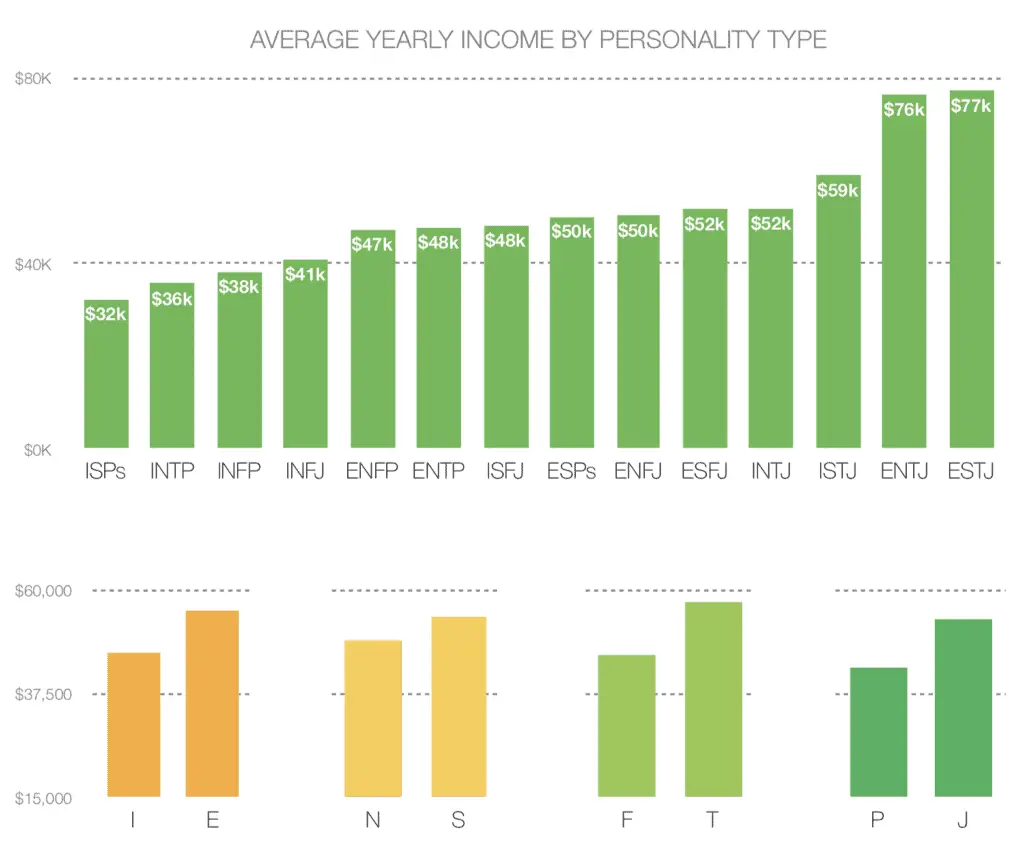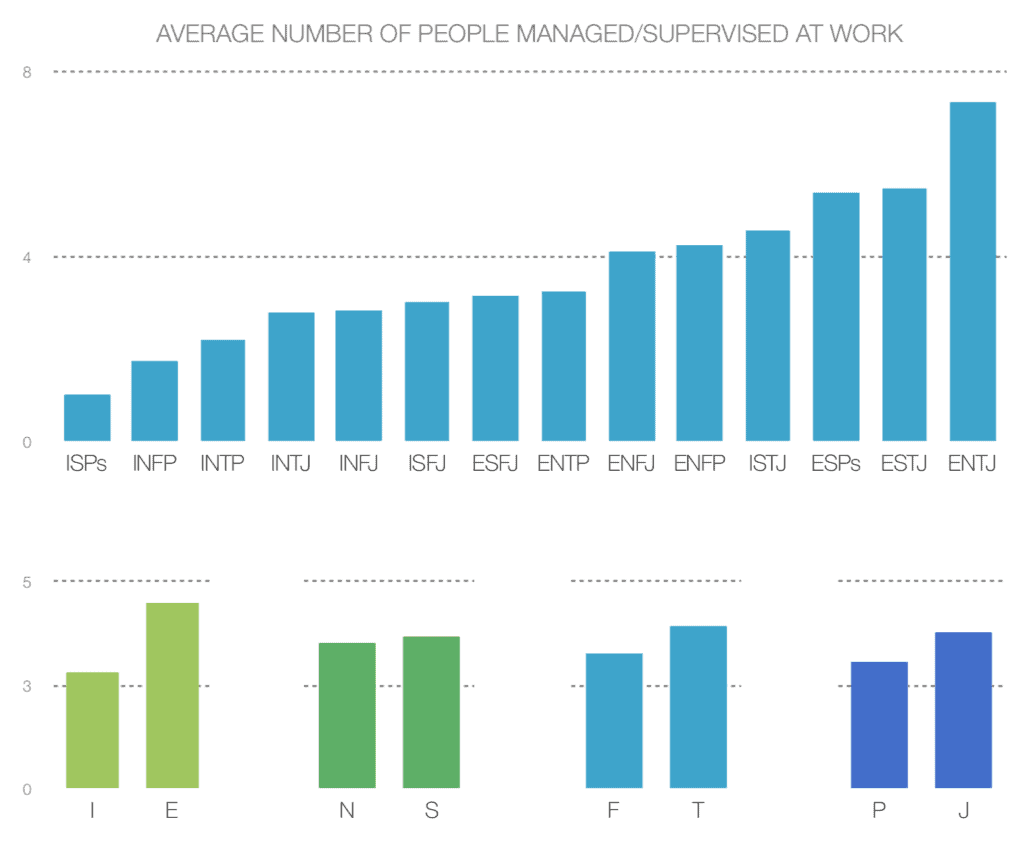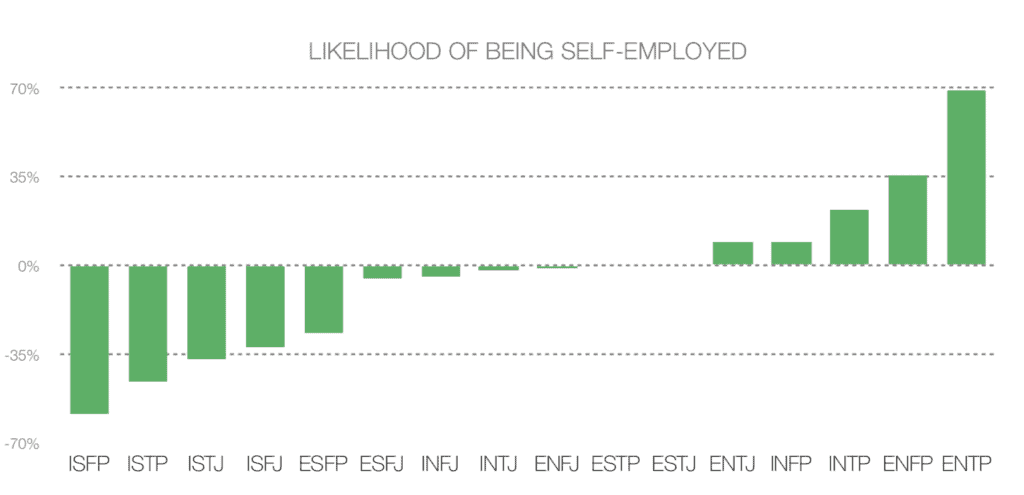7 Proven Reasons Why Introverts Make LESS Money Than Extroverts

This post may contain affiliate links. If you decide to purchase through my links, I may earn a small commission. Read my disclosure page for more info.
Think your industry and career level are the only factors that impact your pay?
Think again.
It turns out that your personality type, whether you’re introverted or extroverted, has a substantial impact on your income.
And for the introverts out there, the news isn’t great…
In a 2015 study by Truity Psychometrics LLC, researchers discovered that introverts make less money than extroverts.
In fact, of the 14 Myers-Briggs (MBTI) personality types studied, introverts make up 5 of the 7 lowest earners based on average yearly income. ESTJs and ENTJs, both extroverted (E) types, took the top 2 spots with average yearly incomes of $77k and $76k respectively.

My personality type, INFJ (Introverted, Intuitive, Feeling, Judging), is ranked 11th out of 14…eek!
While the connection between introversion/extroversion and income may come as a surprise, for many introverts, we regularly see our extroverted colleagues reap many other rewards in the workplace.
Because of their outspoken and sociable nature, extroverts’ accomplishments are recognized more often, they readily win over managers and colleagues, and their ideas (far too frequently) drive discussions while the quieter ones, well, stay quiet.
But how exactly does this translate into higher pay than introverts?
Although not all work environments or introverts fit the mold described here, in the majority of workplaces these are 7 primary reasons why introverts make less money than extroverts.
Related Read: How Introverts and Extroverts Spend Money Differently
7 Reasons Why Extroverts Make More Money Than Introverts
1. Extroverted characteristics are valued more.
It’s no secret that employers want more from a new hire than just work experience and a particular skillset.
Nowadays, companies also consider personality type to be an indicator of one’s likelihood to excel at a job. And in recent years, 20% (and growing) of human resource departments use personality tests during the hiring process.
One of the longest running models for assessing personality is the Big Five personality traits, also known as the Five-Factor Model.
The Big Five personality traits consist of:
- Openness – Do you enjoy trying new things, testing new ideas, entering into new situations, or are creative and/or intellectual?
- Conscientiousness – Are you self-disciplined, organized, efficient, and work towards long-term goals?
- Extraversion – Do you enjoy socializing with people, working with large groups, and are energized by social situations and rewards? Or are you happy to work alone and don’t need external rewards to stay motivated?
- Agreeableness – Are you friendly, cooperative, and compassionate? Or are you competitive and put your needs before others?
- Neuroticism – Do you have a lot of negative emotions like sadness, fear, and anxiety? Or are you confident and maintain a positive outlook?
Based on where you fall within each of these five, many employers believe they can determine a few things about you, including:
- whether or not you will be a good “fit” for the role
- whether or not you will fit with the company’s culture
- whether you possess leadership skills
- the quality of your job performance
- what your job satisfaction will be
Even though conscientiousness and agreeableness are the 2 most sought after traits by employers, higher scores in extroversion signal qualities such as better job performance, higher employee retention, and strong leadership skills.
So for introverts, the cards are stacked against us in pretty big ways.
While there are certainly careers where introversion is an advantage, in many work environments extroverts are viewed as “team players.” They’re the employees who collaborate better with others, sell more products, market ideas, and can lead a team.
Essentially, extroverts’ strong social skills give them a leg up in terms of landing jobs in more collaborative workplaces. They’re also viewed as better leaders, and are therefore given more opportunities to affect change in the workplace.
2. Introverts are less valued in the workplace.
Introverts, on the other hand, aren’t as obvious about what they bring to a team.
In her landmark book Quiet: The Power of Introverts in a World That Can’t Stop Talking, Susan Cain argues that introversion is overlooked and undervalued at work in favor of an “extrovert ideal.”
Because introverts are less outspoken, their ideas are often disregarded, ignored, and introverts themselves are viewed as less integral to a team.
And because introverts socialize less frequently with colleagues, we’re also labeled “antisocial” to top it all off.
But this is one of the most common misconceptions about introverts, and the majority of introverts aren’t antisocial at all. Introversion and antisocial behavior aren’t always connected, and the two words certainly aren’t synonyms.
Rather, introverts simply lean more towards observation than outward self-expression.
We also tend to assess situations and ideas more carefully and thoroughly than our extrovert counterparts. As a result, introverts are more cautious and less hasty in their decision making than others. This careful decision making is utilized everywhere, from our work to our spending habits.
We’re also independent workers and thinkers. Introverts don’t get that “high” from external encouragement and praise like extroverts, so we don’t need (or want!) public recognition or a pat on the back to make us feel good.
Instead, our motivation comes from an inward desire to accomplish tasks, achieve goals we’ve set for ourselves, and finish something to the best of our ability.
But these traits—independent, self-motivated, cautious, and reflective—are often overlooked precisely because they’re internal, not external and obvious.
So in short, introverts are the quiet ones in the office, independently and diligently doing their jobs.
Related Reads:
- Quiet: The Power of Introverts in a World That Can’t Stop Talking – Susan Cain
- The Secret Lives of Introverts: Inside Our Hidden World – Jenn Granneman
- Introvert Power: Why Your Inner Life is Your Hidden Strength – Laurie Helgoe, PhD
3. Introverts are less likely to seek promotions or be promoted.
Because extroverts are externally motivated by social achievements, they seek out opportunities for promotion more actively than introverts.
And if the talkative, outgoing colleagues are going after the promotions, then it’s extremely challenging for the quieter ones to compete.
As well, because of introverts reflective nature, we’re both well aware of our strengths and dwell too much on our weaknesses.
Introverts are more likely to downplay their strengths and abilities, rather than advertise them. This is an obvious disadvantage when it comes to receiving promotions and higher pay.
Essentially, introverts make less money because their humility gets in the way.
We dislike the thought of having to “sell” ourselves and advertise our accomplishments, so we lag behind in career advancement and the resulting financial benefits.
Also, when selecting employees for promotion, managers look for more extroverted qualities, such as the ability to network, lead, and socialize well with others.
Whether they’re aware of it or not, management places enormous obstacles in front of introverts, preventing them from climbing the corporate ladder.
4. Introverts are less likely to be managers.
It’s all connected:
If we aren’t valued for our independent nature, and our introversion prevents us from being promoted, then it’s no surprise that introverts are also less likely to be in managerial roles.
And we all know:
Managers make more money!
In that same Truity Psychometrics LLC study, they found that:
“…the average Introvert reported supervising 2.8 employees at work, Extroverts had an average number of 4.5 reports. Quite apart from overall competence or skill level, a willingness to take on managerial responsibility means an increase in income, and Extroverts are likely more interested in this type of role.”

In fact, whether you are more introverted or extroverted has the greatest impact on the number of people you manage, more than all 3 other Myers-Briggs areas. The Truity Psychometrics study found that only 1 introverted MBTI type, ISTJ, even ranks in the top 8 for number of people supervised.
Now, it’s easy to blame introverts for not seeking promotions or wanting to lead a team, but the truth of the matter is that the odds are just simply against us in most workplaces.
Though we may not be the best networkers or socializers, introverts still possess strong leadership qualities, just not the ones mangers focus on.
Introverts’ leadership skills exist in the form of:
- careful decision making
- meaningful connections with others
- motivation from productivity, rather than ambition
- stronger ability to focus on tasks
As you can see, these leadership skills are harder to see because they’re largely internal, like so much of the introvert experience.
But if workplaces were to value these attributes more, then there would be more introverts in leadership and management roles.
5. Introverts are less likely to be self-employed.
Introverts aren’t the “go-getting” types. The thought of networking, selling our services, and marketing our own products fill us with anxiety and absolute, 100% dread.
As a result, introverts are less likely to strike out on their own, take the risk of starting their own business, and seek self-employment over a more traditional job.

And in my opinion, this is one of the greatest hurdles holding us back both financially and personally.
Self-employment allows you to utilize your personal strengths more. It gives you the opportunity to be more creative, more productive, and make a much larger impact than you would working a non-managerial or lower-level position at a company.
We need more introverts to be self-employed, starting up their own businesses, and putting their unique talents out there in the world so that their voices and ideas are also heard.
And the beauty of the online world is that it’s rife with opportunities for self-employment and entrepreneurship. There are so many creative ways to make money money online and start a side hustle that fits your introversion.
And ultimately, the best way to start working for yourself and finally leave that draining 9-5 behind is by starting a niche blog or website.
What do I mean by niche website?
Well, you can start a money-making website around nearly any topic or service, such as:
- Illustration and/or design – market your services to clients and/or write content
- Crafts/DIY – sell products, share ideas, and teach others
- Parenting – advertise products you love, share experiences with others, create and sell ebooks or printables
- Beauty/Fashion – advertise products you love, teach others trends/techniques, share your looks
- Cooking – share recipes, advertise products, sell ebooks, courses, or printables
The list can go on forever.
With a niche website, you can make money writing, teaching others, and selling products/services centered around your hobbies, interests, and skillset.
And doing so, you’ll be building a profitable online business that suits your introverted nature and allows you to make money sharing what you love with others.
To get your niche blog or website off the ground and venture towards self-employment, sign up for quality, affordable web hosting with Bluehost. I run 2 niche blogs, and Bluehost is by far the best web host to get started with, trust me!
And by getting your website started, you’ll be taking that first, essential leap towards working for yourself, and no one else. Sounds nice, doesn’t it?
Related Reads:
- 43 Creative Money-Making Ideas for Introverts
- 15 Online Side Hustles for Introverts to BOOST Your Income
- How to Make Money with ANY Hobby – 7 Simple Steps
6. Introverts are working for companies that don’t fit them.
Another reason why extroverts make more money is because introverts are working for the wrong companies.
Let’s face it:
Not all companies are a great place to work.
There are so many variables that comprise a work environment, such as:
- the company’s mission/values
- the type of people you work with
- the management style
- the efficiency and efficacy of the workplace
- the office layout
And all of these factors impact our happiness every single day.
For introverts, we can’t work in just any environment and expect it to make us happy.
We prefer to work independently, in a quiet space, and we need a company that provides us this opportunity.
So open floor plans or a shared office space with 20+ other people?
No. It’s honestly an introvert’s worst nightmare.
More than this, introverts don’t respond well to highly competitive and dictatorial workplaces. We value authenticity from our colleagues and managers, trust within a team, and a more collaborative work environment.
If you’re working at a company that doesn’t provide you these things, then you can’t reach your full potential. Period.
There are many introverts out there working for companies whose culture doesn’t fit their own. And as a result, introverts make less money and are less happy, all around.
Related Reads:
- 7 Ways Your Job is Draining You (and How to Fix It)
- 19 Absolute Worst Jobs for Introverts That Cause Burnout
7. Introverts are in jobs that DON’T fit their personality.
There are roles that require more extroverted skillsets and ones that don’t.
If you’re an introvert, you could be making less money because you’re doing a job that just simply doesn’t fit your personality type.
Maybe your career forces you to work as part a large team, give presentations frequently, meet new people all the time, talk to people all day, etc. If you’re doing all of this, then you’re draining yourself.
You need to find a career that allows you to work independently, use your creativity and imagination, collaborate with like-minded people, and conserve energy by minimizing social interactions.
Instead of trying to make you fit your job, find a job that fits you.
In doing so, you’ll certainly make more money because you’re capitalizing on your strengths.
You’ll have more opportunities to climb the ladder, so to speak, and enjoy the work that you do rather than let it drain you.
Related Reads:
- 17 Perfect Jobs for Introverts That Won’t Drain Your Energy
- 17 Work From Home Jobs (That DON’T Involve Phone Calls!)
Conclusion: Should introverts be more “extroverted”?
Even though introverts make less money and the working world presents us unique hurdles, introverts shouldn’t try to be more extroverted.
Instead, we should strengthen skills that don’t come naturally to us, but also leverage the many strengths our introversion provides.
As well, we just need to find those careers and companies out there that’ll value us.
After all, introverts have the capacity to form strong, meaningful relationships with others. Productivity, not our own personal ambition or ego, motivates us. We are precise with our words and keen listeners. These are all assets to a business.
What introverts need to do is share these strengths and our accomplishments more.
Whether that means you have to find a job that suits you, or adopt a bit of extroversion to excel at a career you love, introverts can make more money by tapping into our unique talents and by not being afraid to just simply be ourselves.
You might also find these other introvert articles helpful:
- A Simple Guide to Making Money for Introverts
- 7 Ways Your Job is Draining You (and How to Fix It)
- 17 Perfect Jobs for Introverts That Won’t Drain Your Energy
- Top 10 Hilarious Introvert Memes (March 2020)
- Top 10 Hilarious Introvert Memes (April 2020)






